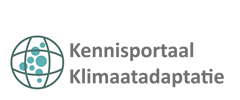Housing corporations as a powerful partner in climate adaptation
Housing corporations are aware of the urgency of climate adaptation. Yet the corporations are still perceiving obstacles preventing them from embarking on climate adaptation, according to a study conducted among the four housing corporations that are active in the city of Leiden.
Housing corporations own and manage a large proportion of the Dutch housing stock. They are indispensable partners in climate-proofing the built environment. For that reason, a study was conducted in Leiden involving the four corporations – Portaal, De Sleutels, Ons Doel, and DUWO – in order to explore how they can be assisted in implementing climate adaptation efforts. In addition, the study has explored how the corporations can collaborate with the municipal authorities, and what part tenants can play.
Results
Acquiring knowledge
There is uncertainty regarding the urgency of climate adaptation, and regarding the role and responsibilities of housing corporations in this issue. In addition, the housing corporations indicate a lack of knowledge regarding climate adaptation measures and their effects. In many cases, responsibility is perceived to be vested with the municipal authorities. Ergo, collaboration with the municipality is essential. However, housing corporation staff will need to amass knowledge themselves, for example, through internal newsletters, through the association of housing corporations Aedes, through the Corporatiebouw magazine, or through the Toezichthouders Woningcorporaties [Housing Corporations Supervisors] association. The housing corporations are open to pilot projects, in concert with the municipal authorities. Learning by doing is generating fine model projects.
Activating housing corporations
Climate adaptation must be placed on the internal agendas. In addition, it is important to draw up a vision incorporating climate adaptation. This vision must be pursued by all the departments within a housing corporation, from the Supervisory Board to the greenery maintenance department. Further to a vision as an internal policy document, climate adaptation can be accommodated in new development plans, renovation plans, scheduled maintenance, greenery visions, and various design briefs.
Climate adaptation can be well integrated into current taskings in the area, such as the energy transition. Enough linkage opportunities exist. However, housing corporations have expressed a need for good model projects.
Obstacles for housing corporations
The study has shown that housing corporations are still perceiving obstacles that prevent them from embarking on climate adaptation. First of all, they experience difficulty in convincing all the staff within their organisations of the urgency of climate adaptation. Furthermore, they find it difficult to motivate tenants to green their gardens. In addition, there is uncertainty regarding who will bear the cost of climate adaptation measures.
What steps have been taken following the study?
After the study in 2017, the housing corporations set to work on climate adaptation. In Leiden Zuid-West, the energy transition is being linked to the climate adaptation tasking. The Ons Doel and De Sleutels housing corporations are involved in this. The municipal authorities, residents, and the Portaal corporation are working on the transformation of a car park into a park (Lakenpark). Municipal staff and the housing corporations are considering the “Collectively Learning to Adapt” project, in order to learn more together about climate adaptation.
Lessons to be learned from the project
- The interviews turned out to be an efficient way to put climate adaptation on the agenda. Staff are prepared to tackle the issue. Collectively gathering knowledge, acquiring skills, and conducting pilot studies, in concert with the municipality, holds potential.
- It helps to inform the corporations that, in technical terms, climate adaptation is neither difficult nor expensive, compared to, e.g., the energy transition.
- The housing corporations are quite willing to initiate climate adaptation efforts. “We want to and we must. We owe it to our tenants! We are all problem owners.”
Contact person
Anneke van Veen
Adviseur kwaliteit leefomgeving
Bureau van Veen
Ae.van.veen@kpnmail.nl
